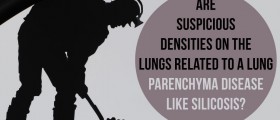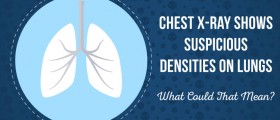
What is acute silicosis?
Acute silicosis is a lung disease caused by inhaling dust containing crystalline silica (alpha-quartz or silica dioxide). Crystalline silica is more widely present than the polymorphs, such as cristobalite or trydimite.
Quarz is the most common form of crystalline silica. It is found in granite, sandstone and slate. In fact, sandstone is 100% free silica.
Silicosis has been known for centuries but it has become significantly more common in the industrial era, especially with the expansion of mechanized mining. In developed countries silicosis is today rarer than half a century ago, because of the strict hygiene and sanitary laws and measures applied in workplaces that include higher risk of silica inhalation. Still, in underdeveloped countries silicosis is still quite common among certain professions.
Symptoms of silicosis
There are two main forms of silicosis, acute and chronic. Acute silicosis develops after exposure to large amounts of silica dust, while chronic silicosis results from long-term exposure to smaller amounts of silica. While acute silicosis sets in shortly after the exposure, chronic silicosis can be asymptomatic for years.
The symptoms of acute silicosis include cough, which can be quite intense, shortness of breath and difficulty breathing, as well as pain in chest and lungs. These symptoms can be accompanied by weakness, fatigue and weight loss.
Treatment for acute silicosis
Unfortunately, there is no specific and definitive cure for acute silicosis. There are steps that can be taken to alleviate the symptoms, reduce the severity of the disease and generally clean the lungs of silica dust.
The first step in treatment is to make sure to prevent further exposure to silica dust. Quitting smoking is also very important in the recovery from acute silicosis. As a form of prevention of complications, patients are advised to get vaccinated for influenza and bacterial pneumonia.
There are several treatment options that are yet to be investigated more thoroughly and officially confirmed as efficient and legitimate treatment for silicosis. Those include corticosteroids, aluminum inhalation, lung lavage and several others.
In very serious cases lung transplant may be the only option.
It is important to check the patient for all potential lung diseases other that acute silicosis. If the patient is diagnosed with active tuberculosis, he or she should be treated with appropriate selection of tuberculosis drugs. Latent tuberculosis can be treated with isoniazid.
Potential complications of acute silicosis include cor pulmonale, respiratory failure and obstruction to the airflow.

















Your thoughts on this
Loading...